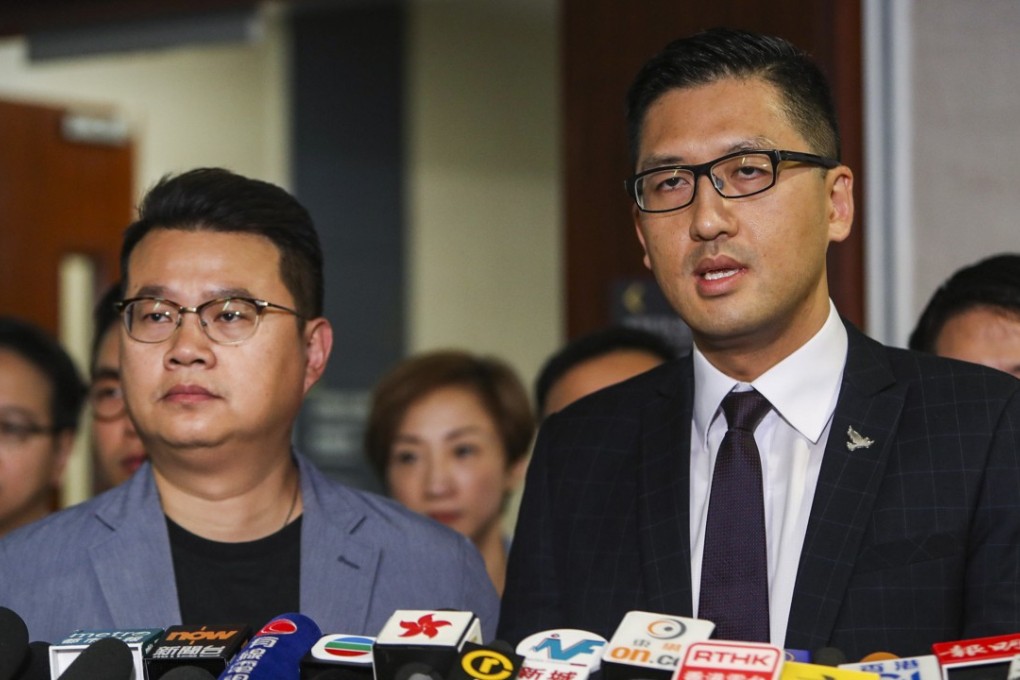Hong Kong lawmakers to be arrested for Legco protest over controversial bill giving mainland Chinese police power of arrest at high-speed rail station
- Democratic Party duo Andrew Wan and Lam Cheuk-ting told to report to police station
- Pair were among five who disrupted debate on checkpoint arrangement for Guangzhou-Shenzhen-Hong Kong Express Rail Link

Two pan-democratic lawmakers face certain arrest over allegations of obstructing and injuring Legislative Council staff during a protest in June, in another blow to opposition forces.
Andrew Wan Siu-kin and Lam Cheuk-ting were told on Friday to report on Monday to police headquarters in Wan Chai, where they will be formally arrested.
The two Democratic Party members said they were accused of breaching section 19(b) of the Legislative Council (Powers and Privileges) Ordinance by obstructing security guards in the legislature. Wan said he was also accused of common assault.
The pair were among five pan-democrats evicted from the Legco chamber on June 13, when a debate on the controversial joint checkpoint arrangements for the cross-border express rail link descended into chaos.
The debate started with the pro-democracy camp protesting against Legco president Andrew Leung Kwan-yuen’s decision to bar 11 lawmakers from speaking after their allotted time ended the previous week.